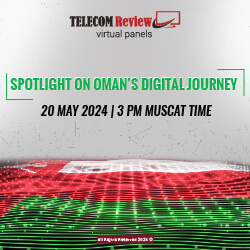By Rami Osman, Director for Corporate Sales and Marketing, MediaTek Middle East and Africa
The emergence of 5G has opened doors to a transformative era in connectivity, offering immense potential to revolutionize the business landscape. With their enhanced speed, minimal latency and greater capacity, 5G networks are paving the way for a new generation of technologies that can propel businesses toward unprecedented growth. The adoption of 5G enables a wide range of applications and services, including real-time video analytics, augmented reality, automotive, gaming, Non-Terrestrial Network (NTN) technology (also known as two-way satellite communications) and industrial automation. Moreover, 5G has the potential to reduce costs by enabling remote working and automating workflows.
UAE is at the forefront of 5G technology adoption in the MEA region and has emerged as the second-fastest 5G service in the world, as per an Ookla report. With a vision to achieve nationwide 5G coverage by 2025, the country has made significant investments in developing the necessary infrastructure to support 5G and is home to several 5G innovation labs and testbeds, allowing businesses to develop new use cases.
Industries that stand to benefit from the adoption of 5G include manufacturing, logistics, healthcare, retail and more.
- In manufacturing, 5G enables flexible wireless connections for real-time monitoring and control of processes, logistics and asset tracking.
- The construction industry can leverage 5G for autonomous operations, remote vehicle management, safe machine operation and more.
- In healthcare, 5G provides flexible wireless connections for remote health assistance, vital sign monitoring, unified management of in-hospital patients and reliable communication for remote surgery and guidance.
- Education and tourism industries can leverage virtual and augmented reality (VR and AR), cloud storage, virtualized tours and demonstrations to enhance their offerings.
- 5G offers secure and reliable connectivity for advanced financial services, including real-time data analysis, low-latency mobile trading, enhanced connectivity for personalized payments and improved security measures.
- Growth of Smart cities and communities with security monitoring, urban environmental monitoring and integrated city management using high-quality video transmission, networked sensors and improved data processing capabilities.
Key Players in the GCC 5G Market
The MEA region has seen significant progress in 5G adoption, with UAE and Saudi Arabia leading the way. The first full commercial 5G mobile service in the MEA region was introduced by Etisalat in UAE in May 2019, followed by du the following month. As of March 2023, 18 countries in the MEA are served by commercial 5G services. The introduction of 5G Standalone (SA) services has further enhanced the end-user experience and network efficiency. The deployment of advanced 5G infrastructure solutions by telecom operators has expanded the 5G footprint in the region.
The growth of 5G is not limited to connectivity alone; it also has a profound impact on the devices market. The proliferation of Internet of Things (IoT) devices across consumer and business segments is expected to grow at a CAGR of 27%, reaching US$138.27 billion by 2028.
Private 5G networks have emerged as a progressive opportunity for businesses and enterprises in the MEA. They offer high network capabilities and support transformative applications, driving smart factories and IoT. Private 5G networks provide superfast connectivity, scalability, high reliability and ultra-low latency, making them ideal for advanced technologies like AI, Edge Computing, Machine Learning and IoT.
The migration of solutions and services to the cloud, delivered as Software-as-a-Service (SaaS), creates opportunities for developers to build solutions and for service providers to host and sell these solutions to their customer base.
Challenges in 5G Adoption Among Enterprises
While the benefits of 5G are significant, there are challenges associated with its adoption. Building the necessary infrastructure for 5G networks can be costly and time-consuming. The deployment of new base stations, network equipment, devices and software compatible with 5G requires significant investment and coordination with multiple stakeholders. Achieving comprehensive network coverage, especially in remote or rural areas, can be another challenge. Interoperability issues may require enterprises to upgrade or replace their current devices and systems to fully utilize the benefits of 5G. Security and regulatory challenges also need to be addressed.
To make informed decisions about 5G adoption, enterprises need to evaluate the potential return on investment (ROI) and the business case for implementing 5G. Staying updated with the latest developments and ensuring compatibility with industry standards are crucial for successful 5G deployment.
5G technology is breaking boundaries and enabling MEA businesses to scale up. With its transformative capabilities, 5G empowers industries across various sectors, revolutionizing connectivity and driving digital transformation. While challenges exist, the potential benefits of 5G adoption are immense. By leveraging the opportunities presented by 5G, businesses in the MEA region can unlock new avenues for growth, innovation and success.










